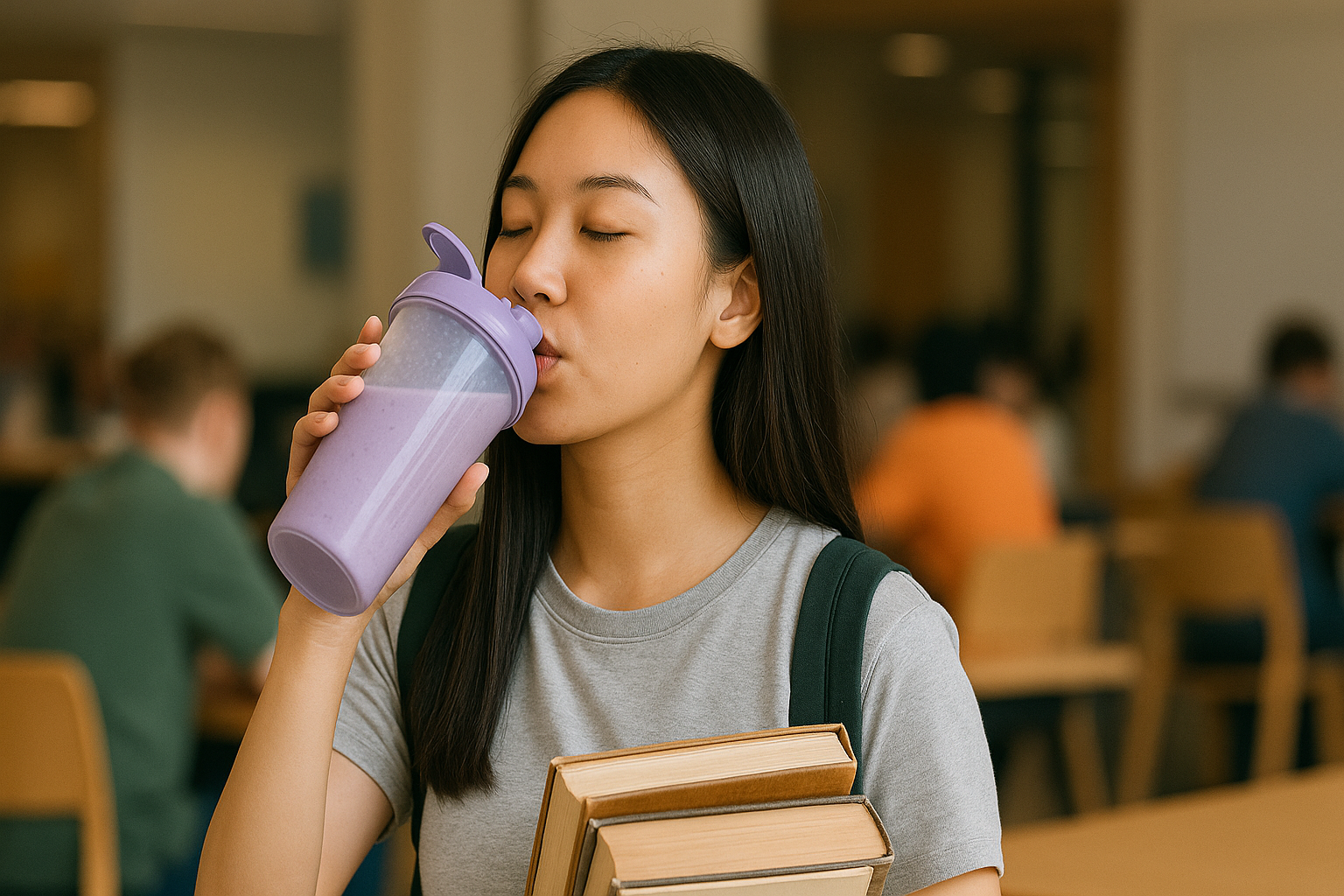Protein Deficiency Isn’t Just a Gym Bro Problem: Here’s How It Shows Up in Your Life
When you hear the word protein, what comes to mind?
Probably a bulky gym bro chugging a shake post-workout, right?
But here’s the truth: protein isn’t just for people trying to build muscle or max out their deadlifts. Protein is an essential macronutrient that impacts everything from your skin and mood to your immune system and energy levels. And many people—especially women and busy adults—aren’t getting enough of it.
In this post, we’ll break down the real-world symptoms of protein deficiency that have nothing to do with how often you hit the gym, and everything to do with how you feel and function every day.
Why Protein Matters (Even If You’re Not Lifting Weights)
Protein is made up of amino acids—often called the "building blocks of life." Your body uses these amino acids to repair tissues, create enzymes and hormones, and support vital organs. Without adequate protein, your body simply can’t operate at its best.
You need protein to:
- Maintain muscle and bone strength (source)
- Repair skin, hair, and nails (source)
- Keep your immune system strong (source)
- Balance blood sugar and support stable energy (source)
- Make enzymes and neurotransmitters for mood regulation (source)
A 2022 study found that nearly 1 in 3 women aren’t meeting their daily protein needs—even though they’re eating three meals a day. (source)
Surprising Signs You Might Be Protein Deficient
You don’t need a blood test to spot the early signs of low protein intake. Here’s how it might be showing up in your day-to-day life:
1. You’re Always Tired, Even After a Full Night’s Sleep
Without enough protein, your blood sugar tends to spike and crash more easily. This leaves you reaching for coffee or sugary snacks to “perk up,” which only makes the energy rollercoaster worse.
Protein helps stabilize your blood sugar, reducing energy crashes and improving mental clarity throughout the day. (source)
2. Your Hair and Nails Are Brittle or Thinning
Keratin, the main protein in hair and nails, requires amino acids. If you’re not getting enough through your diet, your body will conserve protein for vital organs—leaving your hair and nails to suffer.
- Hair shedding more than usual?
- Nails breaking easily?
This could be your body’s SOS signal for more protein. (source)
3. You’re Constantly Craving Snacks or Sugar
Protein helps you feel full and satisfied. When you’re not getting enough, your body will push you toward quick-energy foods like chips, sweets, or processed carbs.
Cravings aren’t just about willpower—they’re often your body trying to get what it’s missing. (source)
4. You’re Getting Sick More Often
Your immune system relies on protein to produce antibodies and white blood cells. If you feel like every bug that goes around ends up knocking you out, a protein deficiency could be lowering your defenses. (source)
5. You’re Losing Muscle (Even If You’re Not Trying To)
As we age, especially into our 30s and 40s, we naturally lose muscle mass. Protein intake becomes even more crucial during this time—especially for women, who are often under-consuming it.
You don’t have to be bulking to care about muscle—it's vital for metabolism, balance, and injury prevention. (source)
So, How Much Protein Do You Actually Need?
Here’s a quick guideline:
- The RDA (Recommended Dietary Allowance) is about 0.8 grams of protein per kilogram of body weight. (NIH source)
- But most experts agree this is a minimum, not optimal—especially for active individuals or those over 30.
- A more effective range is 1.2 to 2.0g per kilogram, depending on your lifestyle and goals. (source)
Example:
If you weigh 140 lbs (64 kg), aim for 75–120g of protein daily.
How to Get More Protein (Without Eating Chicken All Day)
Getting more protein doesn’t have to mean scarfing down chicken breasts or boiling eggs every few hours. Here are some easy, tasty ways to get there:
- ✅ Add a protein shake as a mid-morning or afternoon snack
- ✅ Use Greek yogurt or cottage cheese in meals and snacks
- ✅ Swap sugary snacks for high-protein alternatives (like roasted chickpeas or protein bars)
- ✅ Add seeds (chia, hemp, pumpkin) to smoothies and salads
- ✅ Consider a clean, low-sugar protein powder that you actually enjoy drinking
Why Boba Nutrition Protein Is Different
We get it. Most protein powders taste chalky, are filled with artificial junk, or make you feel bloated. That’s why we made Boba Nutrition Protein—a boba tea-flavored whey protein that’s:
- 🌱 Made with natural sweeteners, not sucralose
- 🧋 Flavored like your favorite Taro, Brown Sugar, and Honeydew milk teas
- 💪 Packed with 24g of whey protein per serving
- 🚫 No chalky taste, no stomach discomfort
It’s a protein shake you’ll actually look forward to drinking—whether you're hitting the gym or just trying to feel your best.
Final Thoughts: Don’t Wait for Burnout to Fix Your Nutrition
Protein isn’t just about aesthetics—it’s about thriving. It supports your energy, immune health, mood, metabolism, and longevity. And it’s one of the most overlooked nutrients, especially for people who aren’t actively tracking their macros or meal prepping every day.
If you’ve been:
- Feeling run down
- Struggling with cravings
- Noticing slower recovery after workouts or even basic activity…
…it might not be just stress or aging. It could be a simple case of not getting enough of what your body truly needs.
Try Boba Nutrition Protein Today →
Take the guesswork out of protein—and enjoy it while you’re at it.





